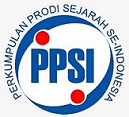Islamic Feminist Thought: The Contributions of Fatima Mernissi 1940-2015
Abstract
This study explores the dynamic and diverse Islamic feminist movement, which aims to promote justice and gender equality by challenging patriarchal interpretations of Islamictexts and customs. Through the work of scholars such as Fatima Mernissi, this research highlights how Islamic feminism seeks to reinterpret Islamic theology and practice to uphold the rights and dignity of women. Using exploratory and historical qualitative methods, this research evaluates the significant contribution of Islamic feminists in challenging existing discourse and improving the status of women. This study examines the contributions of Islamic feminists in Morocco and the Arab world, focusing on their efforts to promote gender equality within an Islamic framework. by investigating Fatima Mernissi's work which emphasizes the need to re-read Islam's sacred texts and expose false and misogynistic hadith. Apart from that, the influence of Kecia Ali's thoughts in "Sexual Ethics and Islam" as well as the critical views of Asma Barlas, Leila Ahmed, and Amina Wadud regarding misinterpretations of the Koran enrich this research so that it provides a comprehensive view. She argues that Fatima Mernissi's works, by offering alternative readings of Islamic discourse on women, have advanced feminist debate and practice in the Arab world, enriching understanding of faith, gender, identity and culture in Islam.
Keywords
Full Text:
PDFReferences
Ahmed, Leila (1992), Women and Gender in Islam: Historical Roots of a Modern Debate, New Haven, Conn: Yale University Press.
Ahmed, Leila (2011), A Quiet Revolution: The Veil’s Resurgence, from the Middle East to America, New Haven: Yale University Press.
Ali, Kecia. (2008), “Sexual Ethics and Islam: Feminist Reflections on Qur'an, Hadith, and Jurisprudence” in Laury Silvers (ed.) Innovative Women: Unsung Pioneers of Social Change, Durham: Duke University Press.
Ali, Kecia (2006), Sexual Ethics and Islam, Oxford: Oneworld.
Amin, Qasim (2011), “Al-Marah-al-Jadidah” and “Tahrir-ul-Mra’h”, Translated by Ted Thorton, NMH Middle East Resource Center
Badran, Margot and Valentine, Moghadam (eds.) (2010), Women and Gender; The Middle East and the Islamic World, London: Brill
Barlas, Asma (2002), Believing Women in Islam: Un-reading Patriarchal Interpretations of the Quran, Austin, TX: University of Texas Press.
Badran, M. (2005). Between Secular and Islamic Feminism/s: Reflections on the Middle East and Beyond. Journal of Middle East Women's Studies 1(1), 6-28. https://www.muse.jhu.edu/article/408727.
Badran, Margot (2011), Feminists, Islam and the Nation, Princeton: Princeton University Press
Badran, Margot and Miriam Cooke (eds.) (1990), Opening the Gates: An Anthology of Arab Feminist Writing, Indiana: Indiana University Press
Cooke, M. (2000). Women Claim Islam: Creating Islamic Feminism Through Literature (1st ed.). Routledge. https://doi.org/10.4324/9780203011706
cooke, miriam. (2015). Fatima Mernissi 1940–2015. Review of Middle East Studies, 49(2), 217–219. http://www.jstor.org/stable/26250482.
Hyder, S. (2021). Global rise of Islamic feminism and its status. Interdisciplinary Journal of Applied and Basics Subjects, 1(2), 1-13.
Kanawati, M. (1993). The Veil and the Male Elite: A Feminist Interpretation of Women's Rights in Islam, International Journal of Middle East Studies, Cambridge University Press & Assessment
Kroll, E. (2020). About Fateme Mernissi. Retrieved from Literary Agency. Inc: https://fatemamernissi.com/about-us
Mernissi, Fatima (1987), The Veil and the Male Elite; Feminist Interpretation of Women’s Right in Islam, Translated by Mary Jo Lakeland, Perseus Books Publishing.
Mernissi, Fatima (1991), Women and Islam: A Historical and Theological Inquiry, Oxford: Blackwell.
Mernissi, Fatima (1992), Islam and Democracy, Translated by Mary Jo Lakeland, Perseus Book Publishing.
Mernissi, Fatima (1994), Dream of Trespass; Tale of Harem Girlhood, Cambridge: Perseus Book Publishing.
Mernissi, Fatima (1994), Women's Rebellion and Islamic Memory. London: CPI Mackays.
Mernissi, Fatima (1996), Scheherazade Goes West: Different Cultures, Different Harems, New York: The Johns Hopkins University Press.
Mernissi, Fatima (2006), The Forgotten Queens of Islam, Translated by Mary Jo Lakeland, Minneapolis: University of Minnesota Press.
Mernissi, Fatima (2011), Beyond the Veil: Male-Female Dynamics in Modern Muslim Society, London: CPI Mackays.
Mernissi, Fatima (ed.) (1987), Doing Daily Battle: Interviews with Moroccan Women, Translated by Mary Jo Lakeland, N.J: New Brunswick
Noon, Claire (2008), “The Missiological Implications of the Islamic Feminism of Fatima Mernissi”, Encounters Mission Ezine, 27: 1-17.
Rhouni, R . (2017). Between Feminism And Islam: Fatima Mernissi And Her Legacy Samyukta: A Journal Of Gender And Culture, 2(1). Https://Doi.Org/10.53007/Sjgc.2017.V2.I1.128
Rhouni, R. R. (2009). Chapter Five. Revisiting Islam from ‘Within’. In Secular and Islamic Feminist Critiques in the Work of Fatima Mernissi (pp. 195-249). Brill.
Rhouni, Raja (2010), Secular and Islamic Feminist Critique in Fatima Mernissi Works, London: Brill.
Rodríguez, A. S. (2014). Theoretical contributions of peripheral feminism and Queer Theory to intercultural education. Procedia-Social and Behavioral Sciences, 161, 29-33. https://doi.org/10.1016/j.sbspro.2014.12.006
Russell, J. (2012), “Human rights: The Universal Declaration VS The Cairo Declaration” [online: web] Accessed on 13 February 2017 URL: http://blogs.lse.ac.uk/mec/2012/12/10/1569/
Seedat, F. (2013). Islam, Feminism, and Islamic Feminism: Between Inadequacy and Inevitability. Journal of Feminist Studies in Religion, 29(2), 25–45. https://doi.org/10.2979/jfemistudreli.29.2.25
Umair, M., Abbasi, S. A. R., Aslam, F., & Rashid, A. (2023). Diluting the patriarchal dominance: Review of Developing Feminist Discourse in Pakistani Context. VFAST Transactions on Education and Social Sciences, 11(1), 202–207. https://doi.org/10.21015/vtess.v11i1.1392
Wadud, Amina. (2017). Fatima Mernissi: A Complex Trajectory. Samyukta: A Journal Of Gender And Culture, 2(1). Https://Doi.Org/10.53007/Sjgc.2017.V2.I1.129
Wadud, Amina (2006), Inside the Gender Jihad: Women’s Reform in Islam, Oxford: Oneworld.
Zayzafoon, L. B. Y. (2005). The production of the Muslim woman: Negotiating text, history, and ideology. Lexington Books.
DOI: http://dx.doi.org/10.24042/00202452260300
Refbacks
- There are currently no refbacks.
Copyright (c) 2024 Farah Shahin
License URL: https://creativecommons.org/licenses/by-sa/4.0
Jurnal El Tarikh is the Journal of History, Culture,and Islamic Civilization (JHCC) [ISSN:2774-7999 dan e-ISSN: 2774-8723] published by Faculty of Adab, Universitas Islam Negeri Raden Intan Lampung, Indonesia in collaboration with Perkumpulan Prodi Sejarah Se-Indonesia (PPSI) and Asosiasi Program Studi Sejarah Islam Se-Indonesia (APSII)
Office: Faculty of Adab, Universitas Islam Negeri Raden Intan Lampung. Jl. Letkol H. Endro Suratmin, Sukarame, Bandar Lampung, Lampung, Indonesia, KP. 34513. Website: http://ejournal.radenintan.ac.id/index.php/eltarikh, Email: Jurnaleltarikh@radenintan.ac.id
Jurnal El Tarikh is licensed under a Creative Commons Attribution-ShareAlike 4.0 International License.







.gif)

1.png)



.jpg)